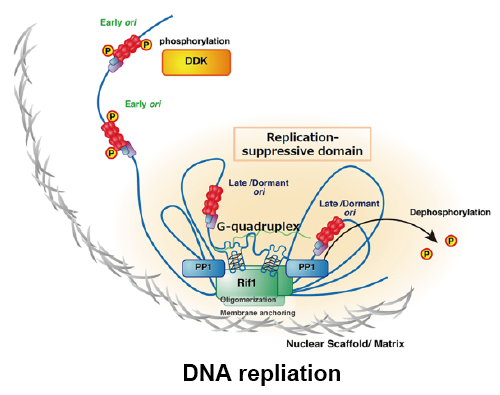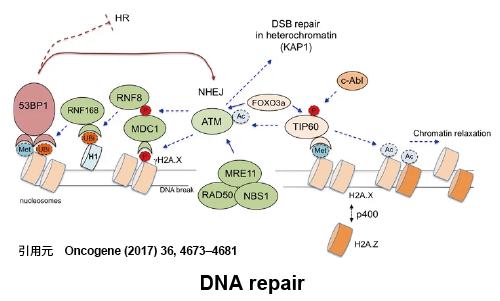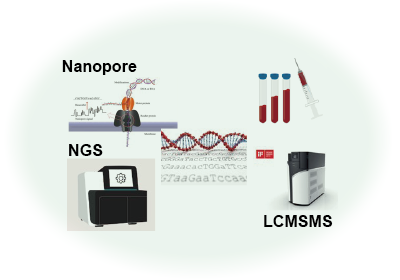
The human genome, consisting of 3 billion base pairs, is frequently subject to damage from both external and internal factors. While most of the damage is correctly repaired, a few are not, resulting in base substitutions. Many of these substituted bases do not affect cellular function, but when base substitutions alter protein function, they could impact cellular phenotypes, such as growth rate and sensitivity to anti-cancer drugs. In some cases, cells emerge that can no longer halt their proliferation. These "cells that cannot stop proliferating" are, in essence, cancer cells. Our laboratory aims to understand the mechanisms underlying chromosome instability, one of the common characteristics of cancer. Chromosome instability refers to the inability to accurately transmit the quality and quantity of genomic information to daughter cells. For instance, the incorporation of incorrect bases by DNA polymerase during DNA replication and repair can lead to a decline in both the quality and the quantity of genomic information. Abnormalities in enzymes responsible for chromosome segregation can relatively result in a change in the quantity of genomic information. Our research group focuses on unraveling the mechanisms of chromosome instability caused by defects in DNA replication and DNA repair, as well as the resulting changes in genome dynamics.
Our research team is focused on:
We are committed to enhancing our collaboration with Tokyo Metropolitan Hospitals, advancing our analyses of clinical specimens to gain deeper insights into molecular mechanism of disease onset. Our team utilizes cutting-edge technologies, including:




We are advancing our research on the molecular mechanisms of disease onset using optimal model organisms by actively utilizing new technologies, such as Next-Generation Sequencing (NGS), Xenium, Nanopore sequencing, and mass-spectrometry

Room 105, Building N,
Tokyo Metropolitan Institute of Medical Science
2-1-6, Kamikitazawa, Setagaya-ku, Tokyo, zip156-8506, Japan
E-mail:sasanuma-hr 
Tel:03-5316-3231
© IGAKUKEN[Genome Dynamics Project]